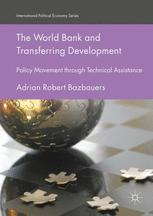

Most ebook files are in PDF format, so you can easily read them using various software such as Foxit Reader or directly on the Google Chrome browser.
Some ebook files are released by publishers in other formats such as .awz, .mobi, .epub, .fb2, etc. You may need to install specific software to read these formats on mobile/PC, such as Calibre.
Please read the tutorial at this link: https://ebookbell.com/faq
We offer FREE conversion to the popular formats you request; however, this may take some time. Therefore, right after payment, please email us, and we will try to provide the service as quickly as possible.
For some exceptional file formats or broken links (if any), please refrain from opening any disputes. Instead, email us first, and we will try to assist within a maximum of 6 hours.
EbookBell Team

4.8
54 reviewsThis book analyses the World Bank’s provision of technical assistance from 1946 to the present day. It argues that the relational dynamics between technical assistance provider and recipient affects the legitimacy of policy norms travelling from the ‘international’ to the ‘domestic’. Beginning from the constructivist position that ‘development’ is a social construct, the author contends that successful policy movement via technical assistance depends on the recipient’s perception of the validity of policy reforms, with perception being influenced by the way those ideas and practices are presented, packaged, and transferred. In advancing this argument, Bazbauers analyses four pillars of World Bank technical assistance: technical assistance components (advisory services incorporated within lending operations), stand-alone technical assistance projects (projects designed to solely deliver technical assistance), survey missions (activities involved in measuring the development status of developing countries), and training institutes (the courses of the Economic Development Institute and World Bank Institute).